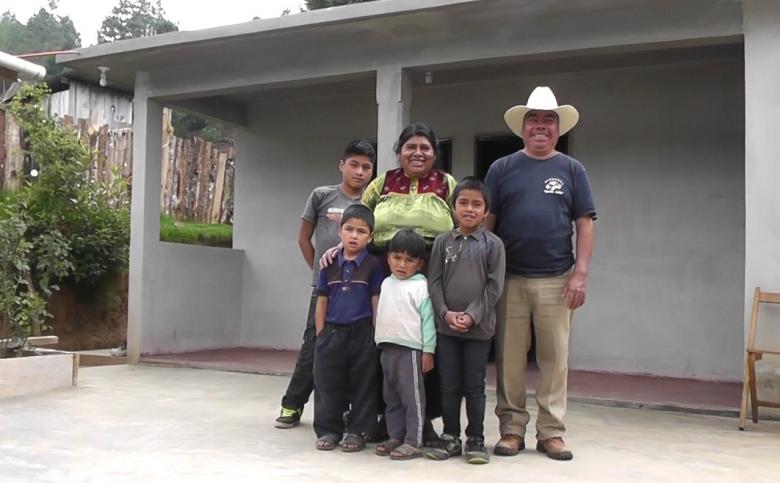W.K. Kellogg Foundation awards Habitat for Humanity with grant to improve housing in Chiapas, Mexico
ATLANTA (April 6th, 2017) – Habitat for Humanity will be able to increase access to microloans for more than 5,300 families in Chiapas, Mexico, thanks to a grant awarded by the W.K. Kellogg Foundation to Habitat.
Through the Development of the Housing Value Chain in the State of Chiapas, Mexico Project, Habitat for Humanity will work to expand the affordable housing market by improving access to client-driven products, services, and financing so that low-income households can create a healthy home for their children. This will have positive impacts on the housing sector, economic vitality of the community and expand housing options for the region.

Chiapas is the poorest state in Mexico. Approximately 78.5 percent of the states’ population is either living in poverty or extreme poverty. The great majority of families don’t have access to any type of formal-sector housing options, such as traditional mortgage products or developer-built homes, and therefore the state suffers from the second largest housing deficit in country.
Beginning in April 2017, Habitat for Humanity will work with local financial and non-financial institutions to expand adequate and affordable housing solutions that can be available to 5,344 low-income families (approximately 26,000 people) over the time span of three years.
“At Habitat, we believe that everyone deserves a decent place to live, especially families who do not have access to the housing market and who need to improve their homes,” said Karen Foreman, acting vice president, Habitat for Humanity International. “We are honored to receive this grant and are committed to working with families in Chiapas to create safe and secure places where they can thrive.”
The total cost of this project is $528,816. The contribution received from the Kellogg Foundation will account for $330,500 of this total, and the remaining amount will be funded by Habitat for Humanity’s Terwilliger Center for Innovation and Shelter.
About Habitat for Humanity
Driven by the vision that everyone needs a decent place to live, Habitat for Humanity began in 1976 as a grassroots effort on a community farm in southern Georgia. The Christian housing organization has since grown to become a leading global nonprofit working in nearly 1,400 communities throughout the U.S. and in more than 70 countries. Families and individuals in need of a hand up partner with Habitat for Humanity to build or improve a place they can call home. Habitat homeowners help build their own homes alongside volunteers and pay an affordable mortgage. Through financial support, volunteering or adding a voice to support affordable housing, everyone can help families achieve the strength, stability and self-reliance they need to build better lives for themselves. Through shelter, we empower. To learn more, visit habitat.org.
About Kellogg Foundation
The W.K. Kellogg Foundation (WKKF), founded in 1930 as an independent, private foundation by breakfast cereal pioneer, Will Keith Kellogg, is among the largest philanthropic foundations in the United States. Guided by the belief that all children should have an equal opportunity to thrive, WKKF works with communities to create conditions for vulnerable children so they can realize their full potential in school, work and life. The Kellogg Foundation is based in Battle Creek, Michigan, and works throughout the United States and internationally, as well as with sovereign tribes. Special emphasis is paid to priority places where there are high concentrations of poverty and where children face significant barriers to success. WKKF priority places in the U.S. are in Michigan, Mississippi, New Mexico and New Orleans; and internationally, are in Mexico and Haiti. For more information, visit wkkf.org.